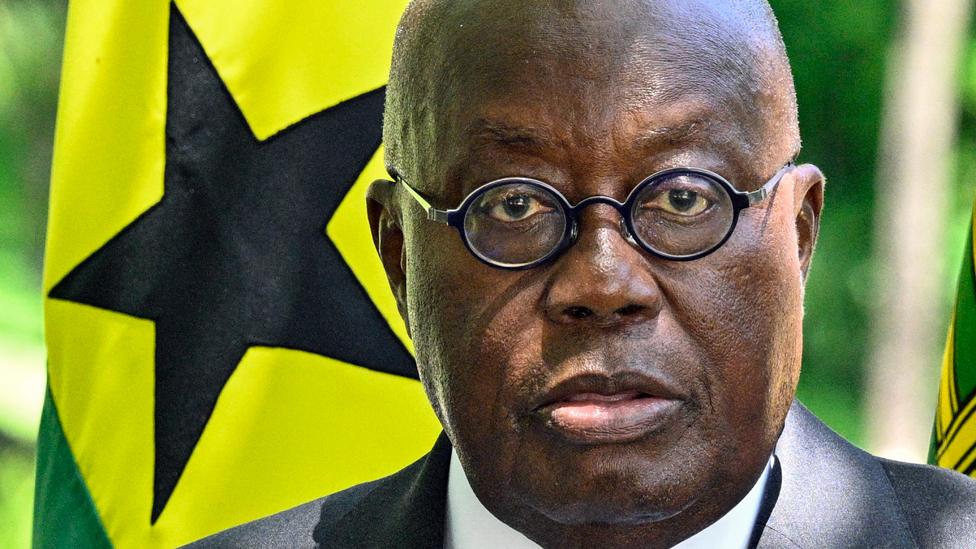Ghana's anti-LGBTQ+ bill: President Akufo-Addo to wait for Supreme Court ruling
- Published

President Akufo-Addo sought to assure the diplomatic community that Ghana was committed to upholding human rights
Ghana's President Nana Akufo-Addo has said he will not assent to an anti-gay bill until the Supreme Court rules on its constitutionality.
Earlier, the finance ministry warned that billions of dollars in World Bank funding could be lost if it became law.
Passed by MPs last week, it imposes a jail term of up to three years for identifying as LGBTQ+ and five years for promoting their activities.
The Supreme Court challenger says there was no quorum when the bill was passed.
Gay sex is already against the law in Ghana, and carries a three-year prison sentence.
The proposed tough new legislation - The Proper Human Sexual Rights and Ghanaian Family Values bill - was backed by both of Ghana's main political parties.
But lawyer Richard Dela Sky, who has filed the application with the Supreme Court, says there were not enough MPs in the chamber when the vote took place.
According to parliamentary rules, at least half of Ghana's 275 MPs must be in parliament and take part in the vote for a bill to be passed on to the president to sign into law.
It has not been reported in the Ghanaian media how many MPs took part in the vote last Wednesday.
The bill has been widely condemned by the UK and the US - and rights groups have described it as regressive.
President Akufo-Addo had previously said that he would sign it if the majority of Ghanaians wanted him to do so.
But he is now seeking to assure the diplomatic community that Ghana is committed to upholding human rights.
He acknowledged that the bill had "raised considerable anxieties in certain quarters of the diplomatic community and amongst some friends of Ghana" that the country may be "turning her back on her, hitherto, enviable, longstanding record on human rights observance and attachment to the rule of law".
"I want to assure you that no such back-sliding will be contemplated or occasioned," he added.
On Monday, the country's finance ministry said Ghana could lose a total of $3.8bn (£3bn) in World Bank funding over the next five to six years.
Ghana is suffering a major economic crisis and last year had a bailout from the International Monetary Fund (IMF).
It is unlikely that the Supreme Court will rule on the case before presidential and parliamentary elections due in December.
Some of the cases filed earlier by human rights groups to stop the bill were not heard before the vote took place.
The elections will see Ghanaians vote for a new president, as Mr Akufo-Addo will be stepping down at the end of his two terms.
You may also be interested in:
Watch: Ghana’s ‘dented their international image’